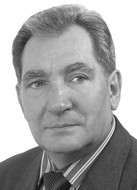Self-reliant school physical training model to support valid school physical education curriculum
Фотографии:
ˑ:
Dr.Hab., Professor A.P. Matveyev1
Dr.Hab., Professor V.Y. Karpov1
PhD, Associate Professor M.V. Eremin1
PhD, Associate Professor A.A. Mikhaylov2
1Russian State Social University, Moscow
2Shuya branch of Ivanovo State University, Ivanovo
Objective of the study was to develop and experimentally prove benefits of a new self-reliant school physical training model to support the valid school physical education curriculum. The model was piloted in one of Moscow gymnasia specializing in foreign languages. Subject to the model piloting experiment were the 4th grade pupils attributed to the main health group, with the sample split up into Experimental Group (EG) and Reference Group (RG). The EG was trained for a school year to master the relevant theoretical and practical basics in the physical education course based on the A.P. Matveyev’s textbooks (2008). The skills and competences were tested and improved by the school physical training and health practices and off-class self-reliant trainings under home tasks. The RG was trained as required by the V.I. Lyakh’s (2014) educational program with the ‘controlled’ physical load secured by the motor intensity of the school physical education lessons. The study data and analyses showed benefits of the new self-reliant physical education model as verified by the students’ progress in the motivational domain with the growing and sustainable interest in the school physical education, plus tested significant progress of the EG versus RG.
Keywords: school physical activity, physical education, health, motivation building, self-reliant practices.
References
- Abramishvili G.A., Karpov V.Yu., Skorosov K.K, Eremin M.V. Sovremennye tekhnologii differentsirovannogo fizicheskogo vospitaniya uchaschikhsya mladshego shkolnogo vozrastasta [Modern technology of differentiated physical education for primary pupils]. Fizicheskaya kultura: vospitanie, obrazovanie, trenirovka, 2015, no. 6, pp. 24-27.
- Karpov V.Yu., Abramishvili G.A. Potrebnostno-motivatsionnye kharakteristiki fizicheskoy kultury mladshikh shkolnikov novykh tipov uchebnykh zavedeniy [Need-motivational characteristics of physical training of younger school students of new types of educational institutions]. Vestnik Sochinskogo gosudarstvennogo universiteta turizma i kurortnogo dela, 2011, no. 2., pp. 141-143.
- Matveyev A.P., Makhov A.S., Karpov V.Yu., Kornev A.V. Soderzhanie ponyatiya «Zdorovesberegayuschie tekhnologii» v kontekste sovremennogo shkolnogo obrazovaniya [Meaning of health protection technologies in context of modern school education]. Teoriya i praktika fiz. kultury, 2016, no. 9, pp. 59-61.
- Matveyev A.P. Teoretiko-metodologicheskie osnovy formirovaniya uchebnogo predmeta «Fizicheskaya kultura» v obscheobrazovatelnoy shkole. Dis. dokt. ped. nauk v forme nauch. dokl. [Theoretical and methodological basics of formation of Physical Education discipline in comprehensive school. Doct. diss. (Hab.) in the form of scie. report]. Moscow, 1997
- Matveyev A.P., Karpov V.Y., Eremin M.V. Uroki fizicheskoy kultury. Metodicheskie rekomendatsii, 1-4-y klassy [Physical Education lessons. Methodical recommendations, 1-4 grades]. Moscow: Prosveshchenie, 2014.
- Аbramishvili G.A. The Technology of Differentiated Physical Education of Primary-Age Pupils Asian Social Science. 2015, vol. 11,no. 19, pp. 329-334.



 Журнал "THEORY AND PRACTICE
Журнал "THEORY AND PRACTICE